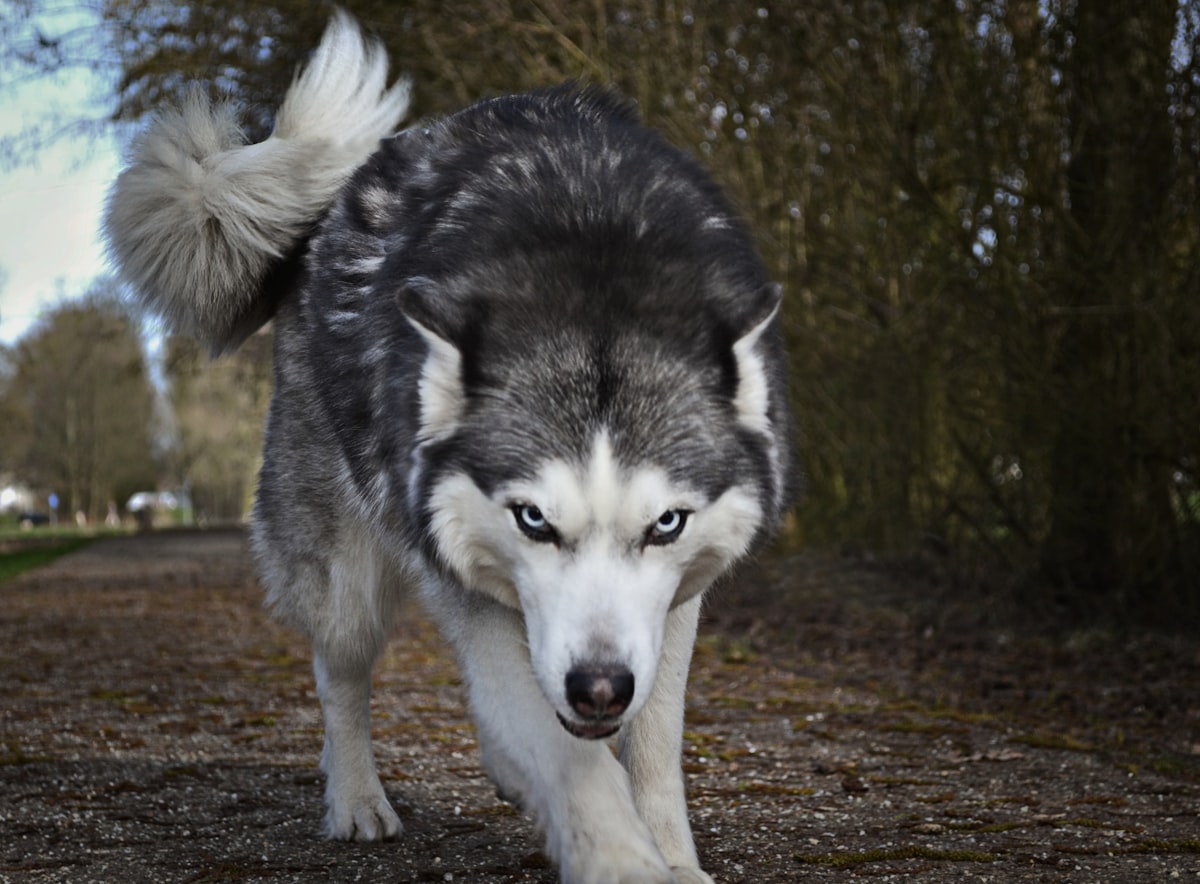Why Did My Dog Suddenly Become Aggressive? Here's What to Do

There may be a number of reasons why a dog might suddenly become aggressive. Fear, anxiety, lack of socialization or training, pain, illness, or changes in the dog's environment are some possible explanations for this.
Another possibility is that your dog was being aggressive all along, but nobody noticed. In order to successfully treat the behavior, it is crucial to understand its underlying causes.
Why does my dog get aggressive with me for no reason?
It's not always possible to pinpoint the precise cause of sudden aggressive behavior in dogs because there are many potential causes. However, the following factors could contribute to unexpected violent behavior:
- Fear or anxiety: When dogs experience fear or anxiety, such as when they are in unknown or stressful settings, they may become hostile.
- Lack of training or socialization: Dogs who have not had the right training or socialization may be unable to communicate or act appropriately in some circumstances, which can result in aggressive behavior.
- Pain or illness: Dogs who are hurt or uncomfortable may act aggressively to defend themselves or let people know that anything is wrong.
- Changes in the dog's environment or routine: Dogs can become violent when their habit or environment are disrupted, such as when a new family member or pet moves in or when their daily schedule is altered.
- Past traumatic experiences: A dog may become aggressive if they have previously experienced trauma, particularly if they have associations with particular circumstances or persons.
- Dominance aggression: The cause of the aggression may result from some dogs' propensity to assert their authority and position as the pack leader.
- Hormonal imbalances: Dogs who are experiencing hormonal changes, such as those brought on by a thyroid condition or other hormonal problems, may become irrationally aggressive.
- Age-related issues: Dogs may have cognitive decline or other problems as they age, which can result in abrupt behavioral changes, including hostility.
- Lack of proper nutrition: Without the right diet, dogs may become more agitated and aggressive.
How do I stop my dogs aggression all of a sudden?
The first thing you could do ASAP is to remove triggers. Determine what makes your dog act aggressively and try to avoid or remove those triggers as much as you can.
It's crucial to respond quickly to protect yourself if your dog is acting aggressively toward you while also attempting to defuse the situation:
- Stay calm: Dogs are aware of our anxiety or fear, and this might make them more aggressive. Avoid yelling or screaming at your dog and try to maintain your temper.
- Create distance: Put a barrier between you and the dog, such as a closed door or a baby gate, to remove yourself from the situation.
- Avoid making direct eye contact: Some dogs may perceive direct eye contact as a threat, which could exacerbate aggressive behavior.
- Use a firm and assertive tone: Use orders that your dog is accustomed to hearing, such as "No" or "Calm down," while speaking with a firm and authoritative tone.
- Use positive reinforcement: Reward your dog for being quiet by giving it food or verbal praise to encourage good behavior.
- Seek professional help: It's crucial to get expert assistance from a veterinarian and/or a trained dog behaviorist or trainer if the aggressive behavior persists or worsens.
☝️ It's necessary to deal with your dog's aggressive behavior as soon as you see it in order to stop it from getting worse. Here are some other actions you may take to assist in controlling your dog's aggression:
- Desensitize and neutralize: Reward your dog for being calm while gently exposing it to the things that make it aggressive in a controlled environment.
- Train basic obedience: Basic obedience training can help you better manage your dog's behavior by teaching them basic commands like "sit," "stay," and "come."
- Provide proper exercise and mental stimulation: Assuring that your dog has appropriate physical activity and mental stimulation will help it discharge stored energy and lessen anxiety.
- Speak with a specialist: You can identify the underlying factors causing your dog's aggression and create a strategy to deal with them with the aid of a certified dog trainer or behaviorist.
- Medication: May occasionally be administered to deal with underlying problems like anxiety or fear that may be causing the violence.
Both male and female dogs may exhibit aggressive behavior out of the blue. The causes of this can vary, but they may include fear or anxiety, a lack of socialization or training, discomfort or illness, modifications to the dog's environment or habit, dominance problems, or previous traumatic events.
It's important to understand that hostile behavior can be complicated and include a variety of elements. It's essential to seek the advice of a qualified dog trainer or behaviorist to handle the aggressive behavior in order to identify the underlying causes of the behavior and create a strategy to deal with them.
In the moment of aggressive behavior, it's important to stay calm and create distance, avoid making direct eye contact, use a firm and assertive tone, and use positive reinforcement.
Remember that aggressive behavior can be dangerous, and take precautions to safeguard others as well as yourself when seeking professional assistance. It's crucial to understand that aggressive behavior can occur in both male and female dogs and is not gender-specific.
Related post:

5 Most Aggressive Dog Breeds: When Do Dogs Attack + Myths
So, how exactly, can we define aggression in dogs? When we hear about aggression in dogs, we may think about dogs that bite, growl, bark, and are a threat to anyone.




Comments ()